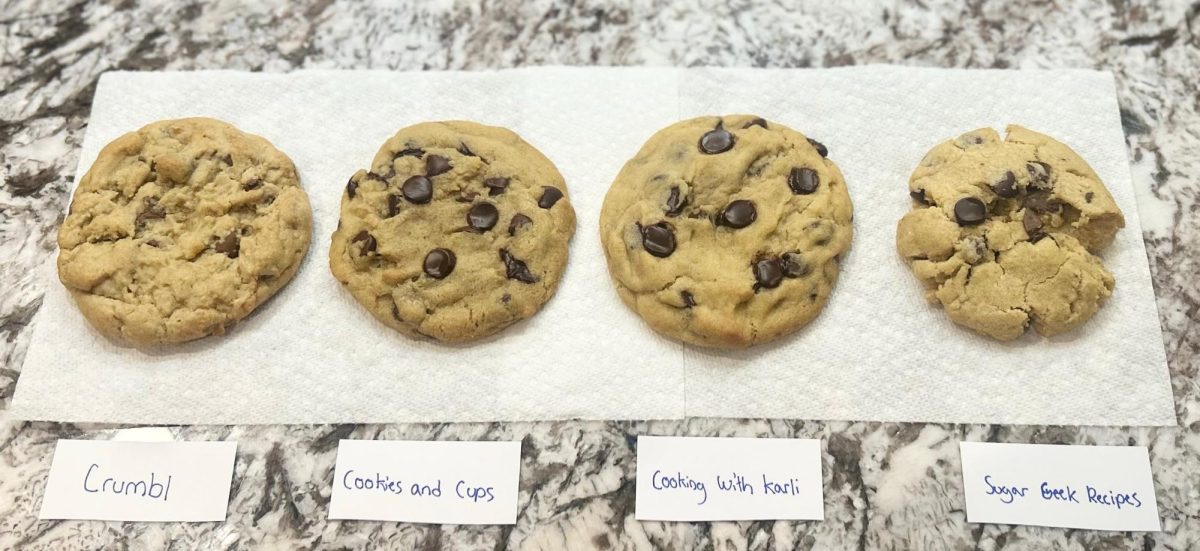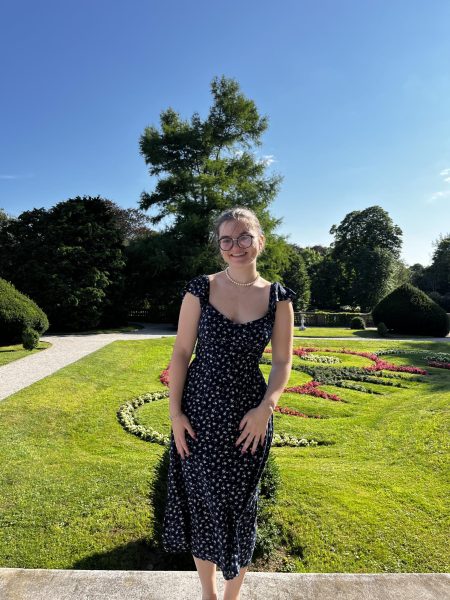According to Junior Achievement only 9% of girls between the ages of 13-17 are interested in STEM subjects, effectively allowing the majority of STEM programs to be male dominated. As a student at DHS who has always favored history and english over science or math, for most of my life, I neglected to analyze why I felt left out by the STEM subjects. At age eight, I was obsessed with mixing vinegar and baking soda after finding out they made a volcano. It was a solid week before the smell of the vinegar left the house completely. Yet, I never told anyone outside of my house about my obsession with the science behind the experiment that week. I felt ashamed that I found science so interesting, since I had never been interested in it before. I felt like I was an imposter since I had always liked singing and art, not anything relating to science. I had already been influenced to think that science was not a thing for girls.
In middle school, I had two female science teachers who were the exact opposites of each other. One was mundane and didn’t care enough to make class more interesting than a sterile hospital room. In complete contrast the other teacher made the classroom interesting and class engaging, I was always interested in her class. We did hands-on projects and experiments that did not include reading from another textbook, when the year was cut off because of Covid I was devastated and fell back into disliking science as we could no longer do experiments. The following year, I had my first male science teacher and felt the effects of being a girl in a male dominated space, he repeatedly referenced, solely about male scientists and used examples only from male students. In his class, I began to interpret science as a subject not for girls. I now know that I became a part of the many statistics that say young women aren’t represented in STEM.
It took until my second year of high school to have a teacher who truly cared about bringing inclusivity into STEM subjects. Mrs. McClelland did not hide that she is passionate about representation of women in STEM and certainly did not shy away from acknowledging the historically unrepresentative field. It was revolutionary to see this in a teacher after years of teachers who made STEM subjects a chore. “I had an amazing science teacher in 7th grade. This was really the first time we ever did anything hands on that we had a choice in.” McClelland spoke about an experience she had with a great science teacher, describing how “it wasn’t about memorizing facts, it was about the idea there was always more to discover.” She emphasized her effort to “pass that along to [her] students too,” adding how she loves “the hands-on activities [they] get to do in class instead of just reading about it in a textbook or even watching a video on it.” Hearing McClelland’s story about how greatly a good science teacher impacted her outlook on teaching made me realize just how similar my experience was. When I asked her about how important it was for girls to see themselves represented in STEM, she replied that, “For a very long time girls were told they weren’t smart enough to do anything in STEM fields. Even those who were successful had to fight for it and often disguised their work under a male name or under the name of a male colleague.” She continues to explain how this issue is still relevant now by saying “ I think this stigma is still out there, you’re a nerd if you like any of the STEM subjects, especially for a woman.” She then details on how we can continue encouraging more women and girls into STEM, and eliminate the stigma around enjoying science as a female when stating “I think the only way to improve this is to show examples of women who have been successful and show the shift that is happening (yay) with more and more examples of women in STEM fields instead of just studying the discoveries from 100 years ago with the old mindset of ‘you’re not good enough.’ It takes brave women to break down the stigmas and we need to celebrate them.” First hand hearing how much McClelland cares about the representation of women in STEM was incredible. Knowing that there is a teacher who is passionate about pushing forward against the various gender barriers in STEM is truly inspiring. It gives me hope that there will be a day in the future where girls no longer have to feel like they are not represented in STEM. No girl should be a Junior Achievement statistic.























